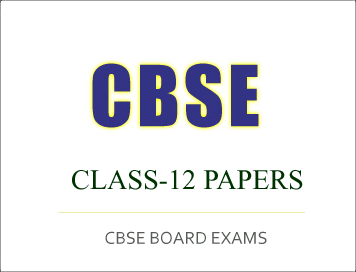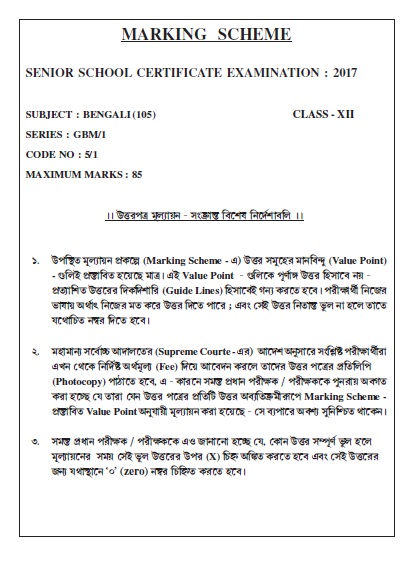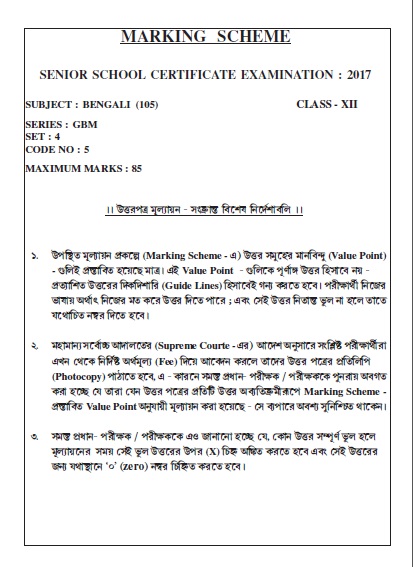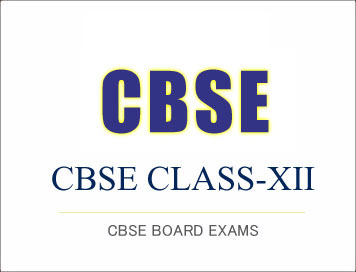CBSE PORTAL : CBSE Class-12 Exam 2017 : Marking Scheme, Bengali | |
| CBSE Class-12 Exam 2017 : Marking Scheme, Bengali Posted: 24 Jul 2017 12:02 AM PDT  CBSE Class-12 Exam 2017 : Marking SchemeQuestion Paper, BengaliCBSE Class-12 Exam 2017 : Bengali (Delhi) |
| CBSE 2017-18 Syllabus Class-12 : Knowledge traditions and practices of India Posted: 23 Jul 2017 11:25 PM PDT
CBSE Class-12 Syllabus 2017-18
Subject: Knowledge traditions and practices of IndiaRationale The "Knowledge Traditions and Practices of India" has been introduced as an elective subject at the Senior Secondary level w.e.f. 2012-2013 in class XI as a pilot and introduced in all schools w.e.f. 2013 in classes XI and XII. After ten years of general education, students branch out at the beginning of this stage and are exposed to the rigours of the various disciplines for the first time. This is the stage when they are made to start reflecting over their future life and decide a career. At this point, they also become aware of certain knowledge traditions and practices of India that are being followed in their families and society around them but few students get an opportunity to lay hands on the vast treasure of knowledge that lies hidden in the form of literature or books. This course aims at providing a broad overview of Indian thought in a multidisciplinary and interdisciplinary mode. It would not seek to impart masses of data, but would highlight concepts and major achievements while engaging the student with a sense of exploration and discovery. It would be an introductory course so that students who take this course are prepared for a related field in higher studies in the universities. The course will cultivate critical appreciation of the thought content and provide insights relevant for promoting cognitive ability, health and well-being, good governance, aesthetic appreciation, right values and appropriate worldview. The course will therefore comprehensively deal with all-round personality development of the students and increase their knowledge about their country. Concept of the Course The knowledge traditions of India are continuous and cumulative. They are textual and exegetical traditions in different areas of thought and experience: philosophy, medicine, grammar, architecture, geography, literary theory, polity and political economy, logic, astronomy and mathematics, military science, metallurgy, agriculture, mining and gemmology, and shipbuilding, among others. Concepts and technical vocabularies of these traditions are still a part of the thinking and the languages of modern India. The tradition is also non-egocentric. The 5th-century philosopher of language, Bhartrihari, states in his Vakyapadiya, a cardinal principle of knowledge constitution: "The intellect acquires critical acumen by familiarity with different traditions. How much does one really understand by merely following one's own reasoning only?" (Bhartrihari, Vakyapadiya, II.484). The traditions are therefore, intrinsically polycentric; Indian thinkers have constantly engaged in internal debate and dialogue and have also interacted with traditions outside India. Aims and Objectives of the course: Students will be able to:
CLICK HERE TO DOWNLOADCourtesy: CBSE
|
| You are subscribed to email updates from CBSE PORTAL : CBSE, ICSE, NIOS, JEE-MAIN, AIPMT Students Community. To stop receiving these emails, you may unsubscribe now. | Email delivery powered by Google |
| Google Inc., 1600 Amphitheatre Parkway, Mountain View, CA 94043, United States | |


